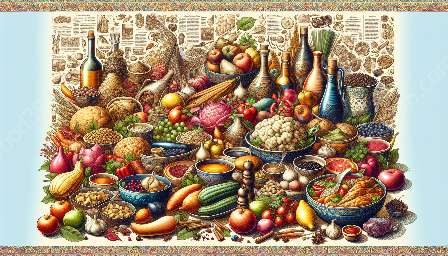Germany's food culture is a reflection of its rich history, diverse regions, and traditions passed down through generations. From the hearty cuisine of Bavaria to the delicate flavors of the North, German food encompasses a wide variety of dishes and culinary traditions.
Origin and Evolution of German Food Culture
The origins of German food culture can be traced back to ancient times, with influences from various civilizations and migrations shaping its culinary landscape. The introduction of new ingredients, cooking techniques, and cultural exchanges over the centuries has contributed to the evolution of German cuisine.
One notable influence on German food culture is the Roman Empire, which introduced elements such as wine production, fruit cultivation, and the use of herbs and spices. The medieval period saw the emergence of guilds and specialized cooking, paving the way for the development of distinct regional cuisines.
Food Culture and History
Germany's history has played a significant role in shaping its food culture. The country's tumultuous past, including the impact of wars, industrialization, and migration, has left a mark on its gastronomy. For example, the Prussian influence introduced a love for hearty, meat-centric dishes, while the maritime traditions of coastal regions brought about a focus on seafood and fish.
Regional variations in food culture have developed over time, with culinary traditions reflecting the local resources and climate. From the potato-centric dishes of the east to the beer and sausage traditions of the south, each region has its own unique food culture shaped by history and geography.
Exploring German Food Culture Today
Today, German food culture continues to evolve, blending tradition with modern influences. The country's commitment to sustainability and quality is reflected in its thriving organic farming movements and dedication to preserving traditional food production methods.
German cuisine has gained international recognition, with dishes such as sauerkraut, schnitzel, and Black Forest cake becoming synonymous with German food culture. The country's beer and wine heritage also holds a special place in its culinary identity, with beer gardens and vineyards offering a taste of German conviviality.
Conclusion
German food culture is a testament to the country's history, diversity, and culinary artistry. From its ancient roots to its modern interpretations, German cuisine continues to captivate and delight food enthusiasts around the world.


